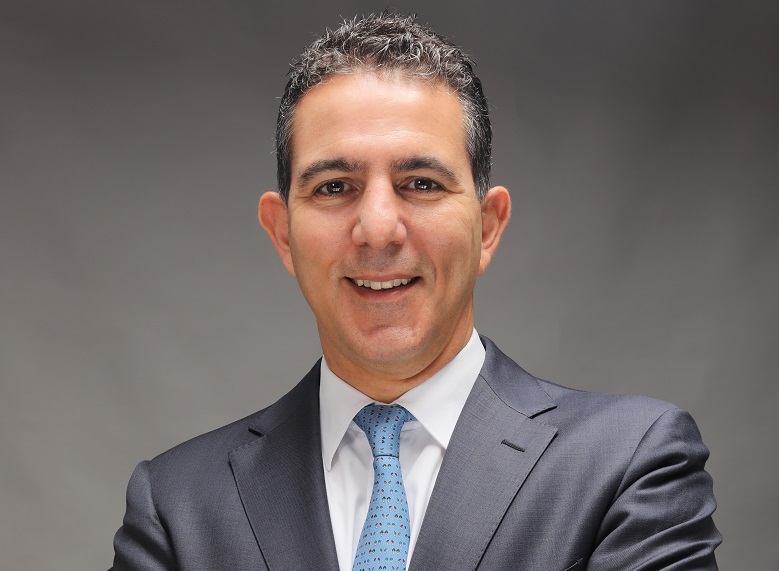It is time for DevOps and container


The pandemic caused changes to be made in digitalization for many years to come to appear suddenly. The foundation of digitalization is the transition to the cloud. It is obvious that there is a tremendous acceleration in the transition to cloud with the pandemic. GlassHouse General Manager Alp Bağrıaçık said that: “CloudNative companies doing business on the internet have grown tremendously. The cloud is the demand of the customer and the engine of digitalization.” He emphasized that companies of all sizes are now much closer to cloud services. Alp Bağrıaçık evaluated regional goals and development in the cloud as:
“Before the pandemic, 91% of our customers came to the conclusion that hybrid cloud was the operating model they should run. This situation continues rapidly by increasing gears with the pandemic. Customers in Turkey were approaching the cloud with an inquisitive attitude 2 years ago. In the last 6 months, the issue has come to an incredible place. Businesses are now turning to the cloud. What they are questioning now are points such as how they will move to the cloud, whether the human resources are suitable, whether their applications can support the cloud, whether the processes are ready or not. Turkey seized the pandemic process, started speeding up digitalization to catch the global, I foresee that cloud transition will accelerate and especially the perspective of SMEs will expand.
From the year we were founded as Glasshouse in 2004 to 2017, our main focus was to provide services to companies that produce data and need business continuity. We have a 65% market share in business continuity and data backup. When it came to 2017, we saw that businesses no longer want to run their IT infrastructures only on premise, which are necessary for business applications, they want to switch to cloud technologies. As of 2018, we have established 2 cloud centers in İstanbul and Ankara and made large investments. We have a partnership with Microsoft Azure. Turkish companies do not only carry out business in Turkey, we have companies that earns most of their turnover from abroad. In order to support them, we did not settle with our cloud centers in İstanbul and Ankara and partnered with Microsoft Azure. We are able to provide the one-stop IT infrastructure services in Turkey and abroad. These companies are in a tremendous competition, especially with the pandemic period, and they need to focus on digitalization and their own processes. When companies like us take care of their information infrastructures, they can focus on their business faster. We tell our customers that we have three main focuses. The first one is this. If they need on promise infrastructure, we have our partner Dell. We became one of the largest 5 integrators in Turkey in 10 years. If you are going to do something on premise, we can set it up in your data center. We can also provide project support in SAP projects. We provide end-to-end support both at your own location, in your own cloud and in Azure. When we combine all of these, we have become one of the few companies to have their own cloud and knowledge at the application layer. We are currently serving with over 50 engineers and this is an enormous resource for a Turkish company. It is getting bigger. We predict that we will grow by 25% in 2021. Companies from neighboring countries also have a desire to work with us. For example; we do not have a company established in Azerbaijan; but 3 of the 5 biggest companies in the country are our customers.
Likewise, companies started to contact us for their needs from South Africa. We established our own company in South Africa. We have started to gain many customers in South African countries and we are developing very good projects. As we do global projects, we see that there are good opportunities in the Middle East. The companies we work with such as SAP, Dell, Microsoft also recommend us in their projects in the Middle East because they see our engineers. We will win our first projects in Bahrain and Qatar in a short time. Our aim is to open a road in the Gulf countries.
Looking at technology trends, virtualization platforms will begin to migrate from the hypervisor we know today to containers in the next three years. As the customer’s habits change, the transition to digital will be made. Our processes and applications will have to be much more agile. The technology behind this is no longer hypervisor. We need to use container technologies in order to write software that is agile. Software developers need to make improvements with DevOps solutions and present their application developments using containers. No company now has the luxury of changing the market on its own. Digitalization processes starting from the customer will make applications agile, they will bring the containers, we will move from virtualization to container. If you look at the large container references in the world now, almost all banks have started to switch to containers. As GlassHouse, we started to market the container infrastructure that we established in industrial standards and sizes 6 months ago. We have a release methodology as Alpha and Beta. First we use it, then we use it for a small number of our customers. Last month we finished our Beta process. Some customers are currently using our platform and nearly 10 customers are meeting with us to switch to our container platform. Financial payment companies in particular are pioneering this. The driving forces of digitization will be DevOps and the container.











